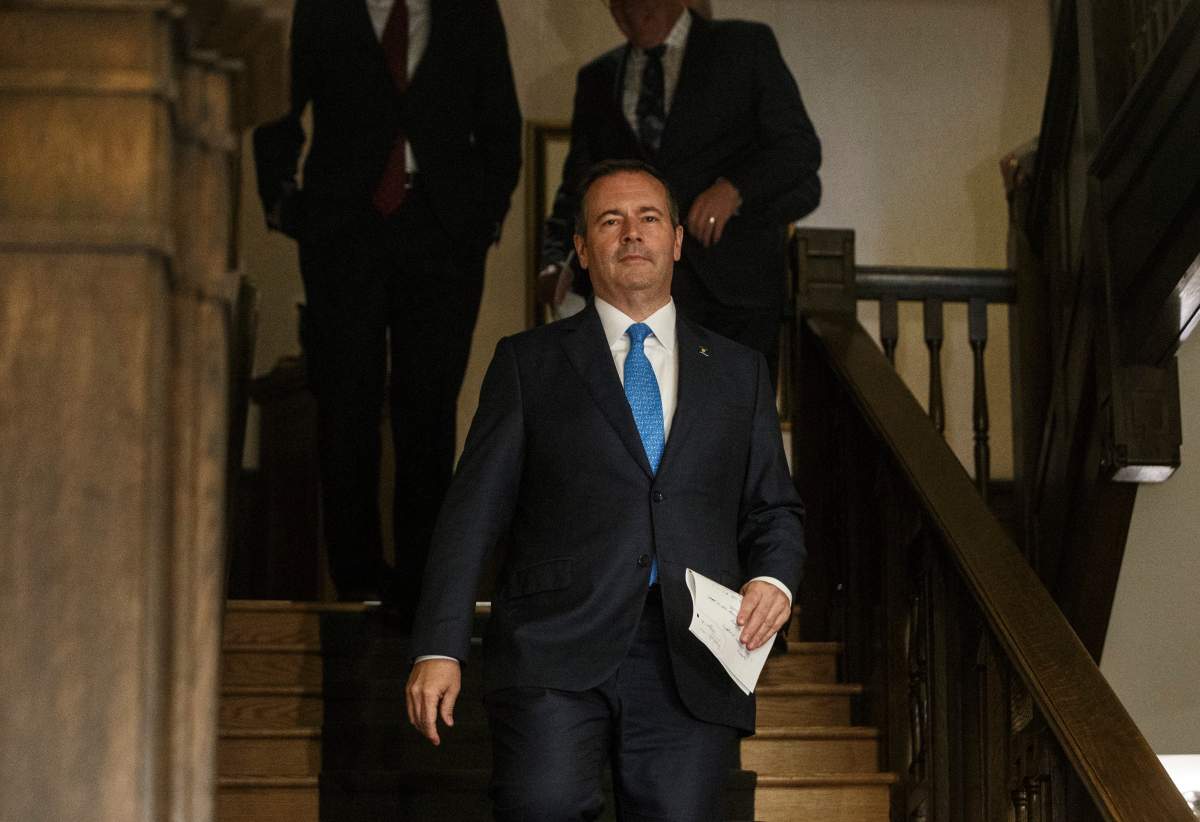Newly released figures show the Alberta government ended the last fiscal year with a deficit more than $2 billion smaller than originally predicted in the budget.

Higher oil prices and more than $800 million in additional tax revenue are being credited for shrinking the red number.
The figures show resource revenue was up $1.6 billion from what was expected in the 2018-19 budget — the last brought in by Rachel Notley’s NDP before a provincial election loss earlier this year to Jason Kenney and the United Conservatives.
Expenses were up $150 million and, overall, the Alberta government ended up spending $6.7 billion more than it made.
UCP Finance Minister Travis Toews, calling it unsustainable, focused on the province’s debt in a statement that accompanied the numbers.
“Alberta’s debt has skyrocketed to more than $80 billion,” Toews said.

Get breaking National news
“This level of debt is unsustainable and we will be taking every measure possible to ensure this is brought under control to get Alberta on a path to balance.”
Kenney has said he won’t release his government’s first budget until the fall to give a government-appointed panel time to examine Alberta’s finances.
The panel, headed by former Saskatchewan finance minister Janice MacKinnon, is to report by Aug. 15 on ways the province can save money.
When she was appointed, MacKinnon called Alberta a big-spending province, but said that hasn’t translated into better public services.
“Even if the budget was balanced, I would look at the spending … because a lot of money is being spent in a lot of areas and you are not getting the outcomes,” she said at the time. “You are not getting the results.”
The new government has already passed legislation that delays contract provisions that mandate binding arbitration for 180,000 public-sector workers. Under current collective bargaining agreements, those arbitration hearings must occur on or before the bill’s new deadline of Oct. 31.
The government said the delay is necessary to let MacKinnon’s panel do its work.







Comments
Want to discuss? Please read our Commenting Policy first.